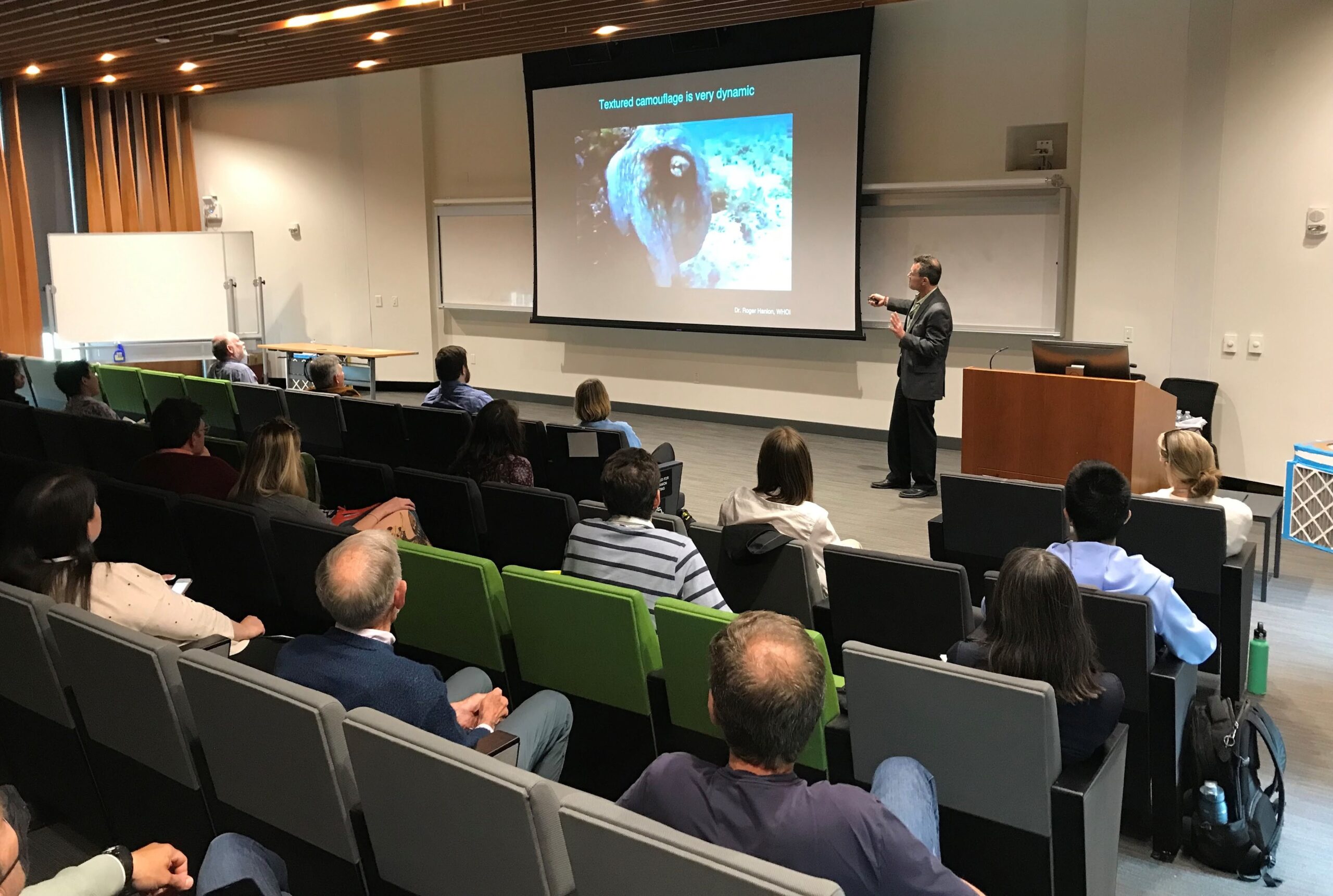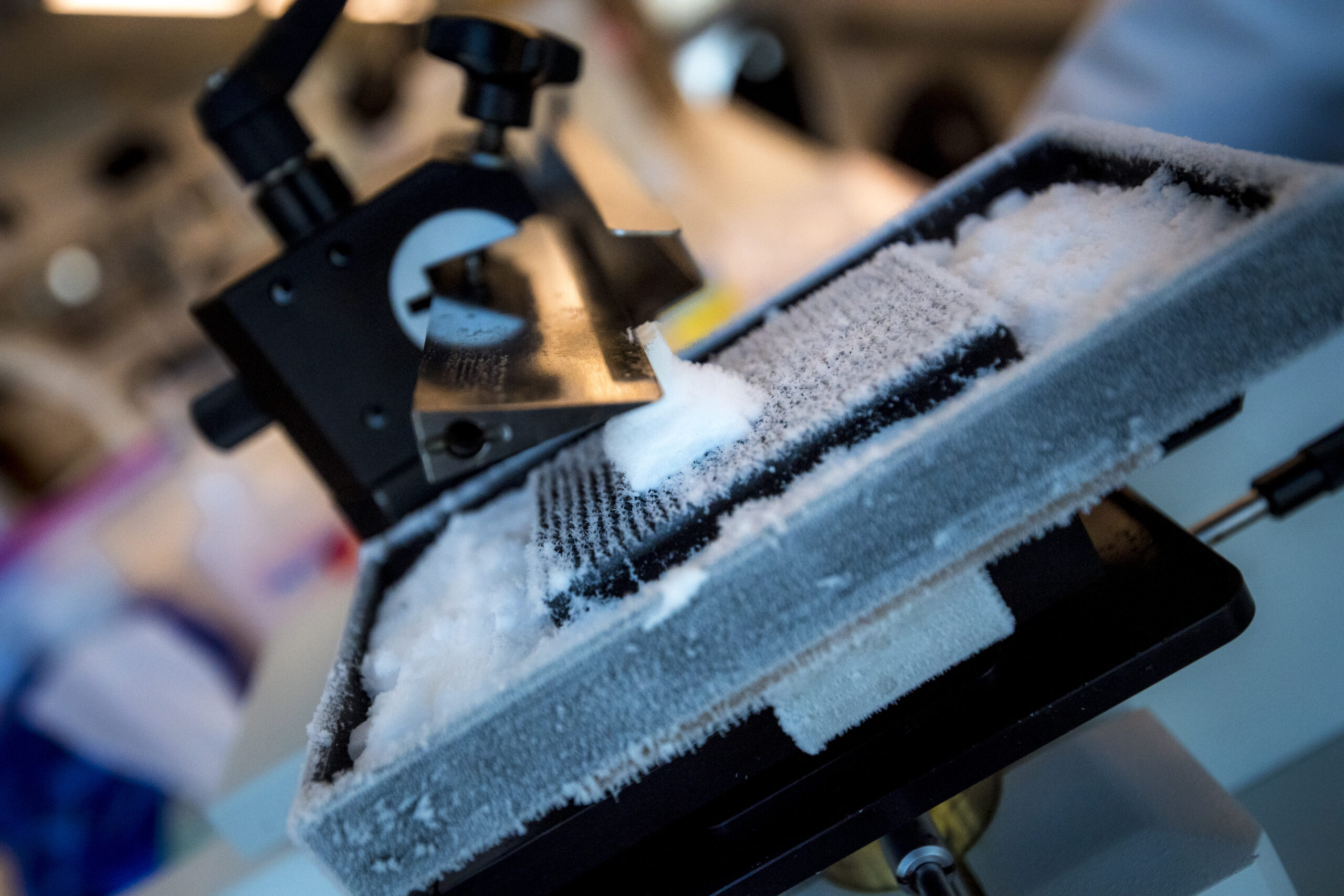
Innovative Research Grants
The Kavli Institute for Brain and Mind (KIBM) solicits proposals for the support of innovative interdisciplinary research.
The purpose of the KIBM Innovative Research Grant Program is to foster research focused on ideas that bridge different levels of organization of brain and mind. A goal of this program is to stimulate testing of hypotheses for which no standard funding stream is available. We are interested in innovative, risky projects from which a high payoff could be obtained. A further goal is to assist in generation of preliminary data that will enable funding from extramural agencies. Preference will be given to proposals encompassing several disciplines or laboratories and for projects that catalyze new collaborative research. Extensions of ongoing research programs are not likely to be favorably considered.
- The Contact PI must have an appointment at UC San Diego or the Salk Institute and is the individual with primary responsibility for overseeing the project supported by the grant. PI eligibility is not limited to faculty investigators. We welcome applications from graduate students and postdocs.
- The Contact PI can only submit one application. Any one investigator can only be named on up to 3 proposals. All proposals are required to have a minimum of 2 participating labs on the project with a focus on interdisciplinary collaboration.
- Potential to bridge the brain-mind gap. This can occur in several ways, but a common thread for the best proposals is that they involve creative combination of novel techniques (often from different disciplines), attempt to relate mechanisms to behaviors, and cross system levels.
- Interdisciplinarity. A goal of the IRGs has been to facilitate collaborations between groups and labs that might not otherwise work together, on the assumption that such collaborations are often key to making headway on challenging problems.
- Novelty. We look for proposals that reflect novel ideas that are not currently being pursued, and for which IRG funding would be catalytic.
- High risk/high payoff. We do not expect all IRG projects to succeed, because these should be projects that have high risk -so many will fail- but are very interested in proposals which, if successful, could have a significant payoff in terms of advancing our knowledge.
- Not currently fundable. Consistent with #3 and #4, we do not fund projects for which there either exists current funding or a reasonable potential for funding via other mechanisms.
- Potential for follow-on extramural funding. The IRGs should support work that has the potential, if the initial work is successful, in enabling subsequent extramural funding from federal and/or private sponsors.
- Preference for new projects. It is unlikely that research teams will be awarded continued funding (renewals) for a previously awarded IRG project unless the initial research yielded significant results and the renewal application involves a new direction.
- UC San Diego postdocs should log into InfoReady via the UC San Diego Login button with their Active Directory credentials in order to access the application. Please note that this is considered an internal proposal for UC San Diego applicants so there is no need to route the application to UCSD’s Office of Contracts and Grants via Kuali Research.
- Salk postdocs should log into InfoReady under the Login for Other Users section to access the application. Salk postdocs who do not already have an InfoReady account can click on the Register button to create one.
Application Information and Materials
Online Application Form via InfoReady
Letter(s) of Collaboration
A letter of intent to collaborate is required from each faculty-level team member. These letters should be included and uploaded as part of the InfoReady application.

IRG Award Recipients
The KIBM IRG Program supports exceptional scientists at UC San Diego and Salk Institute to pursue innovative research in neuroscience.

Post-Award Resources
Fund managers and awardees can access the IRG Program Post-Award Resources below to view award terms and conditions.